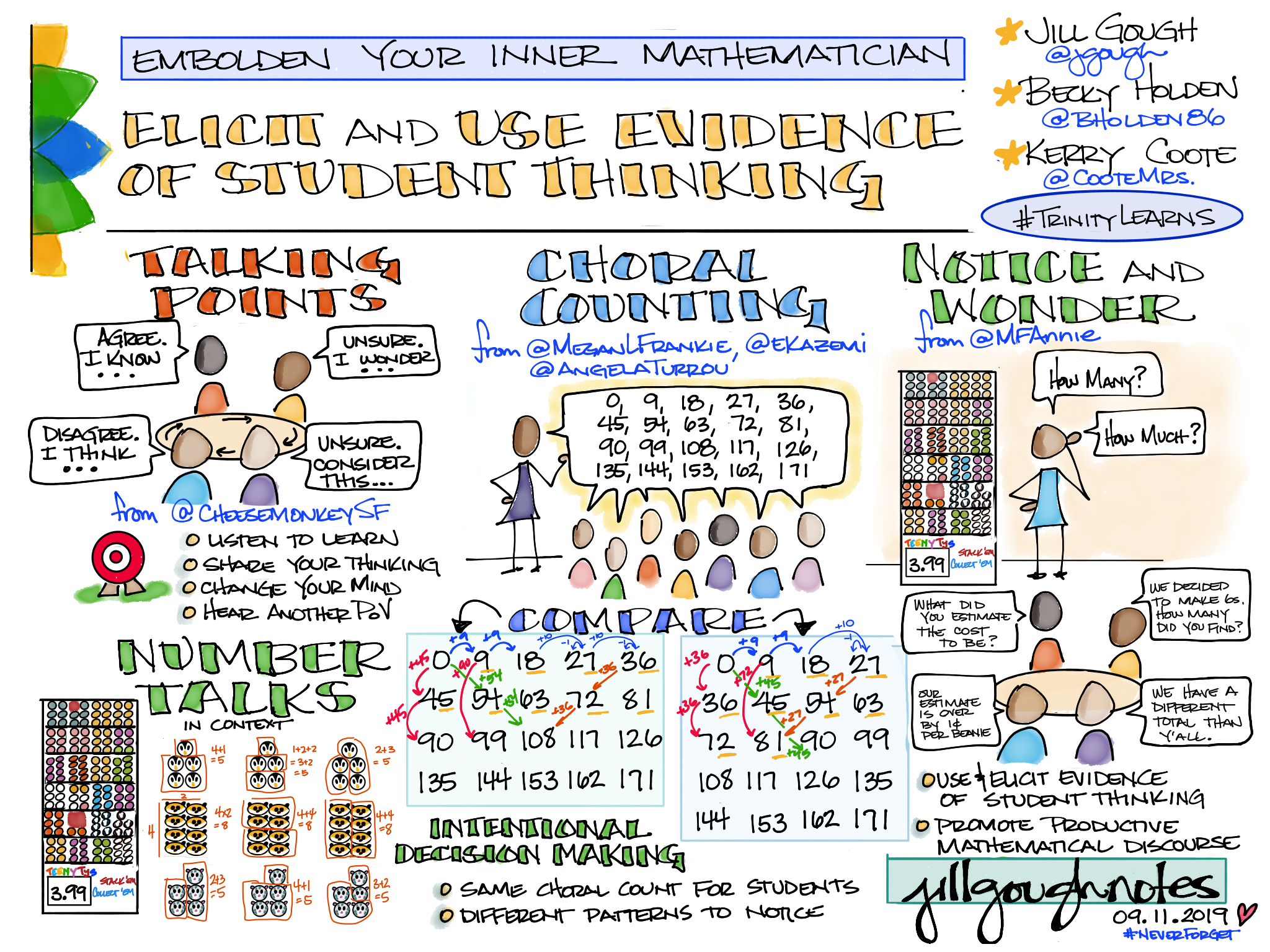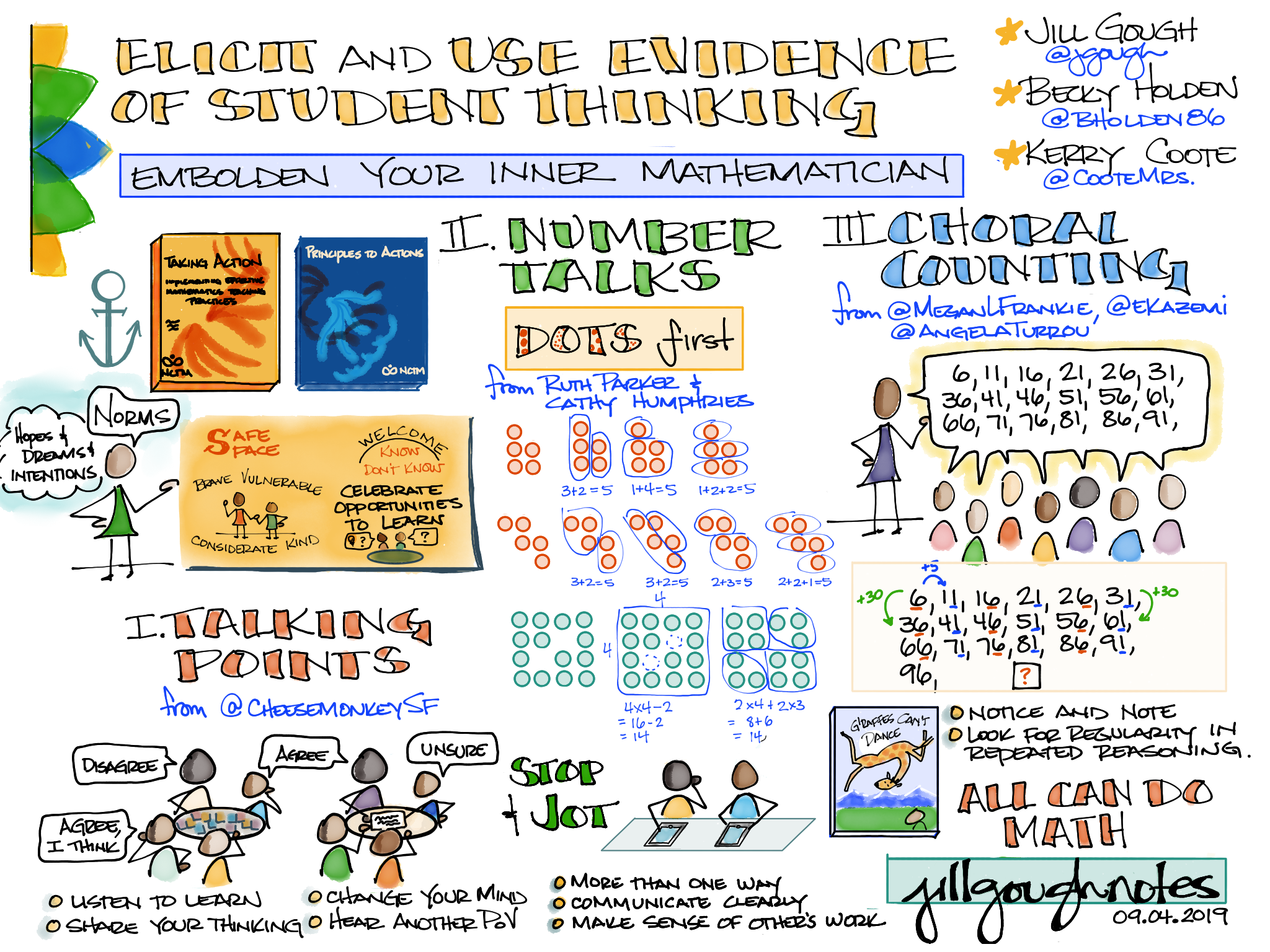Embolden Your Inner Mathematician Session 2
Subitizing, Number Talks, and Choral Counting:
#NCTMP2A: Elicit and use evidence of student thinking
Course Goals:
At the end of the semester, participants should be able to say:
- I can exercise mathematical flexibility to show what I know in more than one way.
- I can make sense of mathematical tasks and persevere in solving them.
- I can work within NCTM’s Eight Mathematical Teaching Practices for strengthening the teaching and learning of mathematics.
Elicit and use evidence of student thinking.
Effective teaching of mathematics uses evidence of student thinking to assess progress toward mathematical understanding and to adjust instruction continually in ways that support and extend learning.
Principles to Actions: Ensuring Mathematical Success for All
Session Goals:
At the end of this session, participants should be able to say:
- I can make sense of tasks and persevere in solving them.
- I can elicit and use evidence of student thinking.
- I can construct a viable argument and critique the reasoning of others.
- Show your thinking so a reader understands without asking your questions.
Agenda and Slide Deck
| 7:30 | 15 min | Gather and connect
|
Jill |
| 7:45 | 15 min | Break for Birthday Breakfast | |
| 8:00 | 5 min | Elicit and Use Evidence of Student Thinking | Jill |
| 8:05 | 20 min | Subitizing with Beanie Boo pictures | Becky |
| 8:25 | 20 min | Choral Counting | Kerry |
| 8:45 | 30 min | Beanie Boo Task – image | Jill |
| 9:15 | End of session |
Jill’s Notes:
Homework:
Read pp. 207-211 from Taking Action: Implementing Effective Mathematics Teaching Practices in Grades K-5
- What the Research says: Elicit and Use Evidence of Student Thinking
- Promoting Equity by Eliciting and Using Evidence of Student Thinking
Franke, Megan L. Choral Counting and Counting Collections: Transforming the PreK-5 Math Classroom.. Stenhouse. Kindle Edition.
Leinwand, Steve. Principles to Actions: Ensuring Mathematical Success for All. Reston, VA.: National Council of Teachers of Mathematics, 2014. (p. 46) Print.
Smith, Margaret Schwan., et al. Taking Action: Implementing Effective Mathematics Teaching Practices in Grades K-5. The National Council of Teachers of Mathematics, 2017.

